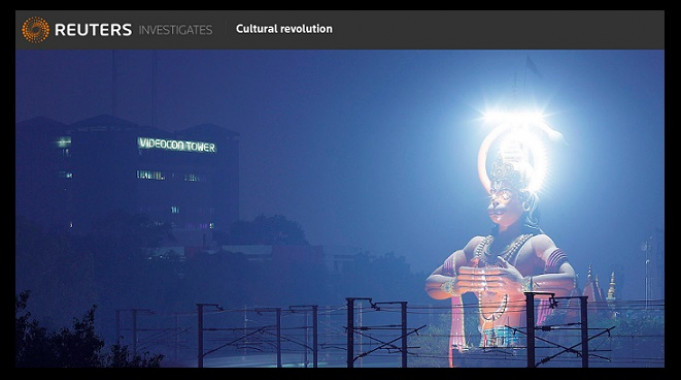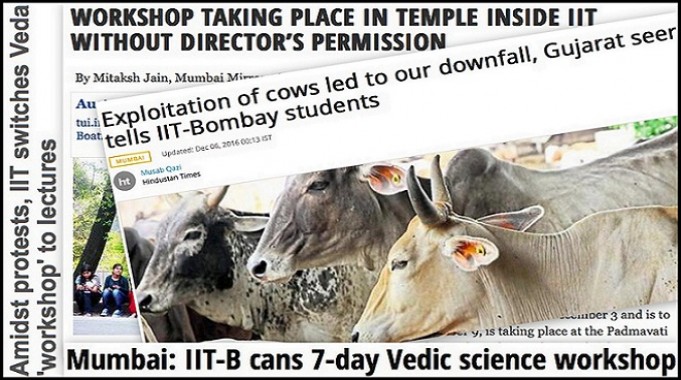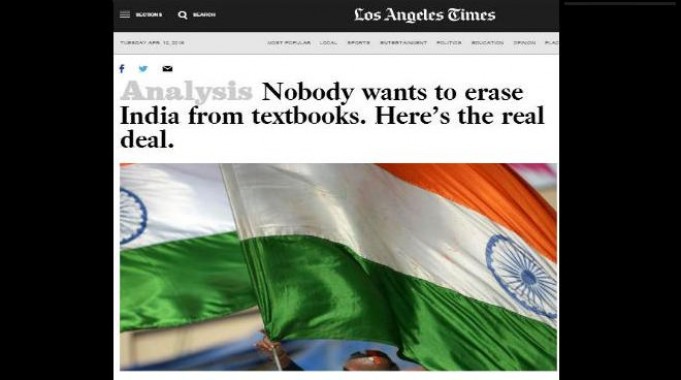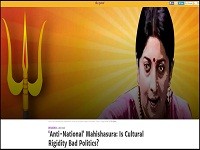BY VAMSEE JULURI|
IN MEDIA PRACTICE
|10/03/2018
A Reuter’s report reveals the bias, clichés, and laziness that crop up on the subject of Hindus and India’s ‘first inhabitants’.
BY VAMSEE JULURI|
IN MEDIA PRACTICE
|17/12/2016
When a scholar’s lifelong study of ancient knowledge systems is reduced to slogans, it means the media is imposing its own preconceptions on his work.
BY VAMSEE JULURI|
IN MEDIA MONITORING
|16/06/2016
How did the US and Indian media convert an attempt to erase ‘’India’ and ‘Hinduism’ into a fight between ‘bad’ Hindus and ‘good’ secularists?
BY VAMSEE JULURI|
IN MEDIA PRACTICE
|13/04/2016
In reporting California’s history curriculum changes that will remove the words ‘India’ and ‘Hinduism’, the LA Times has been less than truthful,
BY VAMSEE JULURI|
IN MEDIA PRACTICE
|02/03/2016
Why were her remarks framed as being in opposition to Mahishasura worship rather than as opposition to the denigration of Durga?
Subscribe To The Newsletter











